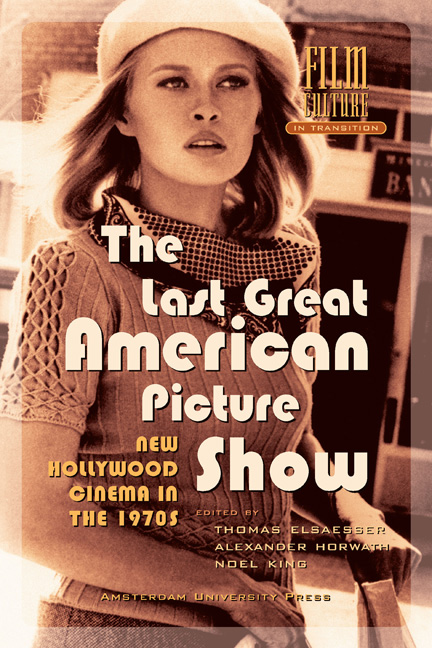The Decade When Movies Mattered
Published online by Cambridge University Press: 25 January 2021
Summary
I had a dream about 1970s movies. There was that image from the end of DELIVERANCE (1972), of the hand coming up out of the water – the corpse that refuses to go away. One hand. Where's the other hand? I wondered. Zinger! It erupted frombeneath the cinders on the grave of CARRIE (1976), a hand to drag us down into the darkness.
But perhaps you were only in elementary school in the 1970s, and thus, in a country with contradictory impulses about sheltering its young, you did not attend to what was going on then. After all, it's a fundamental right in the saga of psychic shelter that no one really has to notice things. The most up-to-date new frontier is knowing how to look the other way.
Who the hell is talking to you like this? How old is he? The author is 52, and he loved the decade of the 1970s and its movies. It was a time of travail and upheaval when the world took it for granted that grownups were born to take notice. We had movies then that you had to watch. The age gave us plots as intricate and unrelenting as THE STING (1973) and CHINATOWN (1974). Sitting in the dark watching the show kept you as wired as an air-traffic controller. If you weren't awake you would miss some sudden glimpse or murmur:
• IN TAXI DRIVER (1976), Travis Bickle is guiding his yellow steel church through the scum when, just like a scrap of paper, a pale face scutters across his view; it's a kid, a girl, Iris, Jodie Foster. Bickle is riveted by the second or so of that face and the scent of need. He's seen a soul to rescue, and so the dementia of the plot begins.
• IN THE LONG GOODBYE (1973), whenever anything remotely musical plays –-not just the movie's theme, but a piano idling in a bar, a funeral procession in a small Mexican town, a doorbell in Malibu: it's always a variant of the song “The Long Goodbye,” by Johnny Mercer and John Williams. The melodic phrase hangs in the air, like haze or the trade of lies in L.A. – it's the sound of a game, and the click of fate closing. It tells you that so much in L.A. is set up, scripted, produced. There's so little ‘there’ left – just lines, shots and locations.
- Type
- Chapter
- Information
- The Last Great American Picture ShowNew Hollywood Cinema in the 1970s, pp. 73 - 82Publisher: Amsterdam University PressPrint publication year: 2004

